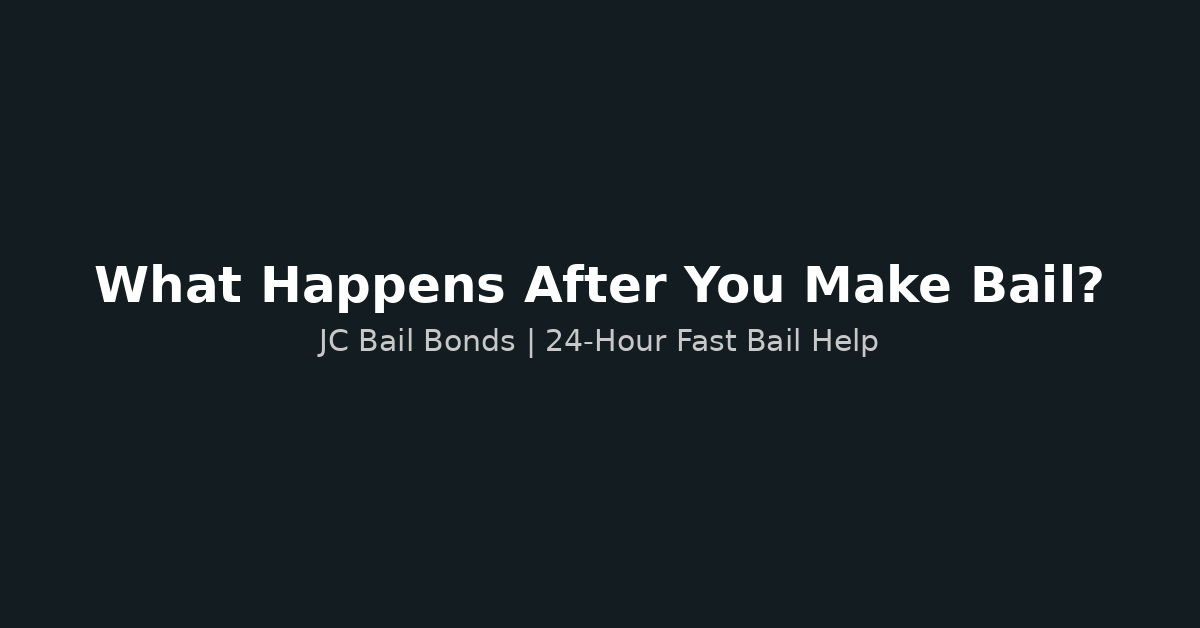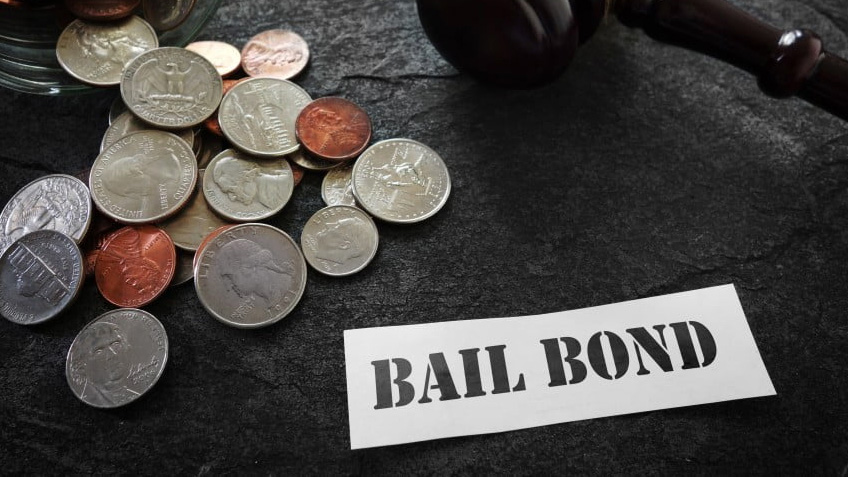Imagine this: John, a hard working dad of two, finds himself in a bad situation. He’s been arrested for a minor offense, but even though he’s innocent until proven guilty, he’s got one major obstacle to overcome before he can get back to his family: bail. As John sits in the county jail, he finds out he’s got two options — cash bail or a bail bond. Both have big implications for his immediate future. It’s not just about getting out of jail; it’s about weighing the pros and cons of each.
In this post we’ll break down the differences between Cash Only Bondsman and Bondsman Durham, how each works and the pros and cons for John. It’s important to understand these options because the choice could impact your financial and legal situation. If you need help, JC Bail raleigh Bondsman can guide you through this process. Let’s get into how each works and which one is best for you.
What is Cash Bail?
Cash bail is the simplest way to post bail. It’s when the defendant (or their family) pays the full bail amount in cash to the court. The purpose of cash bail is to ensure the defendant shows up for their court dates and it’s a financial guarantee.
For example, if the court sets John’s bail at $10,000, his family can pay that full amount to the court and he’ll be released. If John shows up for all his court dates, the money will be refunded. If he misses any dates, he loses the full amount.
Pros of Cash Bail
- Financial Control: One of the biggest advantages of cash bail is John can control his own release without involving a third party like a bail bondsman.
- Full Refund: As long as John shows up for all court dates, the full bail amount is refunded. No risk of losing money to fees or premiums.
- No Interest or Fees: Unlike bail bonds, you don’t have to worry about extra charges or premiums. You pay the bail and get it back in full.
Cons of Cash Bail
- High Costs: The biggest downside of cash bail is it’s often too expensive for most people to afford. If John’s bail is $10,000, his family would have to come up with that full amount upfront. This can be especially tough for low income families.
- Risk of Forfeiture: If John misses any court dates, his family risks losing the entire amount. That financial pressure can add to an already bad situation.
- Delayed Release: If John’s family can’t get the money fast, he might be in jail longer than necessary. Without access to large sums of cash immediately, the release process can be delayed.
What are Bail Bonds?
Bail bonds are a great alternative to cash bail when the bail is too high for the defendant or their family to pay. In this case John’s family would call a bail bondsman at JC Bail Bonds. The bondsman would pay the court the full bail and John would be released. In return John’s family would pay the bail bond company a non-refundable fee (10-15% of the total bail).
Let’s say John’s bail is $10,000 and the bail bond fee is 10%. John’s family would pay $1,000 to the bail bondsman who would post the full $10,000 to the court. But that $1,000 is non-refundable even if John attends all his court dates.
Pros of Bail Bonds
- Lower Upfront Costs: One of the biggest advantages of a bail bond is John’s family only has to pay a fraction of the total bail amount upfront. Instead of scrambling for $10,000 they only need to come up with $1,000.
- Faster Release: A bail bondsman can speed up the release process. They have relationships with the court system so they can negotiate faster and get John released quicker.
- Professional Help: Bail bond agents guide families through the complicated bail process. This can be a big help if you don’t know the system.
Cons of Bail Bonds
- Non-Refundable Fees: One of the biggest drawbacks of using a bail bond is the 10-15% fee is non-refundable even if John attends all his court dates. His family will never see that $1,000 again.
- Collateral: In some cases the bail bondsman may require collateral (property or a vehicle) to secure the bond. This adds more risk as John’s family could lose their collateral if John doesn’t show up to court.
- Legal and Financial Liability: If John skips bail the bondsman is legally liable for the full bail amount. The bail bond company may also come after John’s family for additional fees or collateral if John doesn’t comply with court orders.
Cash Bail vs Bail Bonds
When deciding between cash bail and bail bonds there are several key differences. Both serve the same purpose: to get the defendant out of jail and back to court. But the financial and legal implications are very different.
Costs
- Cash Bail: John’s family pays the full bail and gets it all back if John attends all his court dates.
- Bail Bonds: John’s family pays a fraction of the bail (10-15%) and that’s non-refundable.
Financial
- Cash Bail: Family loses the full bail if John doesn’t show up to court.
- Bail Bonds: Family loses collateral and additional fees if John skips bail but not the full bail.
- Cash Bail: John’s family is 100% financially responsible for the bail amount.
- Bail Bonds: If John doesn’t show up the bail bondsman pays the full bail but John’s family still has to pay fees and potentially forfeit collateral.
Societal Impact of Cash Bail and Bail Bonds
The US bail system has been criticized for perpetuating economic inequality. Cash bail often hits low income defendants like John who can’t afford to post bail. So they stay in jail while awaiting trial even if their charges are minor or non violent. Pretrial detention can lead to job loss, family separation and more financial instability.
Bail bonds are an option for those who can’t afford cash bail but the system has its critics. Bail bond companies profit from people’s misfortune by charging non refundable fees which can create a cycle of debt for vulnerable families. The requirement for collateral means low income families risk losing property and further widening the gap between the haves and have nots.
How JC Bail Bonds Can Help
Navigating the bail system can be overwhelming especially with high costs and legal risks. That’s where JC Bail Bonds comes in. Offering professional and reliable services JC Bail Bonds helps families get their loved ones out of jail through affordable bail bond solutions. With a commitment to helping families in need JC Bail Bonds provides quick and hassle free services to reduce the stress and uncertainty that comes with an arrest.
At JC Bail Bonds you can find the bondsman services you need to get out without the financial burden of posting full cash bail. Their experienced bail bondsmen will guide you through the whole process, with transparent fees and flexible payment options to make it as smooth as possible. If you or your loved one ever find themselves in a situation like John’s JC Bail Bonds is here to help.
Conclusion: The Right Choice
The choice between cash bail and bail bonds comes down to your financial situation, legal responsibilities and personal risk tolerance. If you can afford to pay the full amount cash bail is the way to go with a full refund. But for many families the high upfront cost makes bail bonds the more accessible option even though it comes with non refundable fees and potential collateral loss.
Whatever you choose make sure you know the pros and cons. Get help from professionals like JC Bail Bonds and you’ll make the right choice for your situation and get out while minimizing the risks. Know your options and you’ll be more confident and stress free in the legal system.



